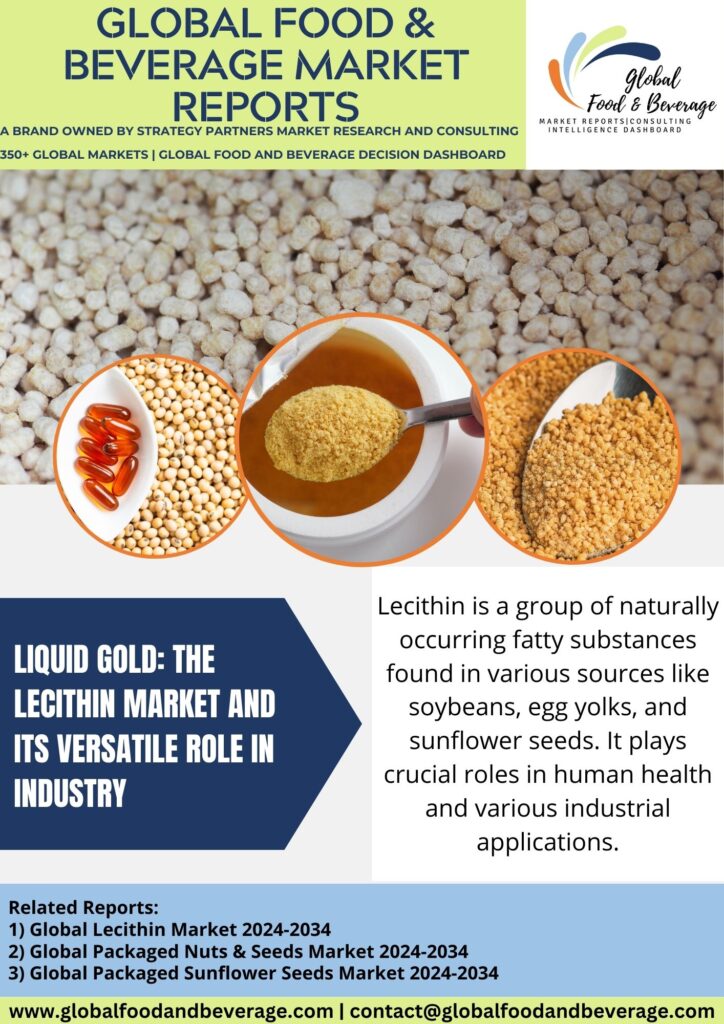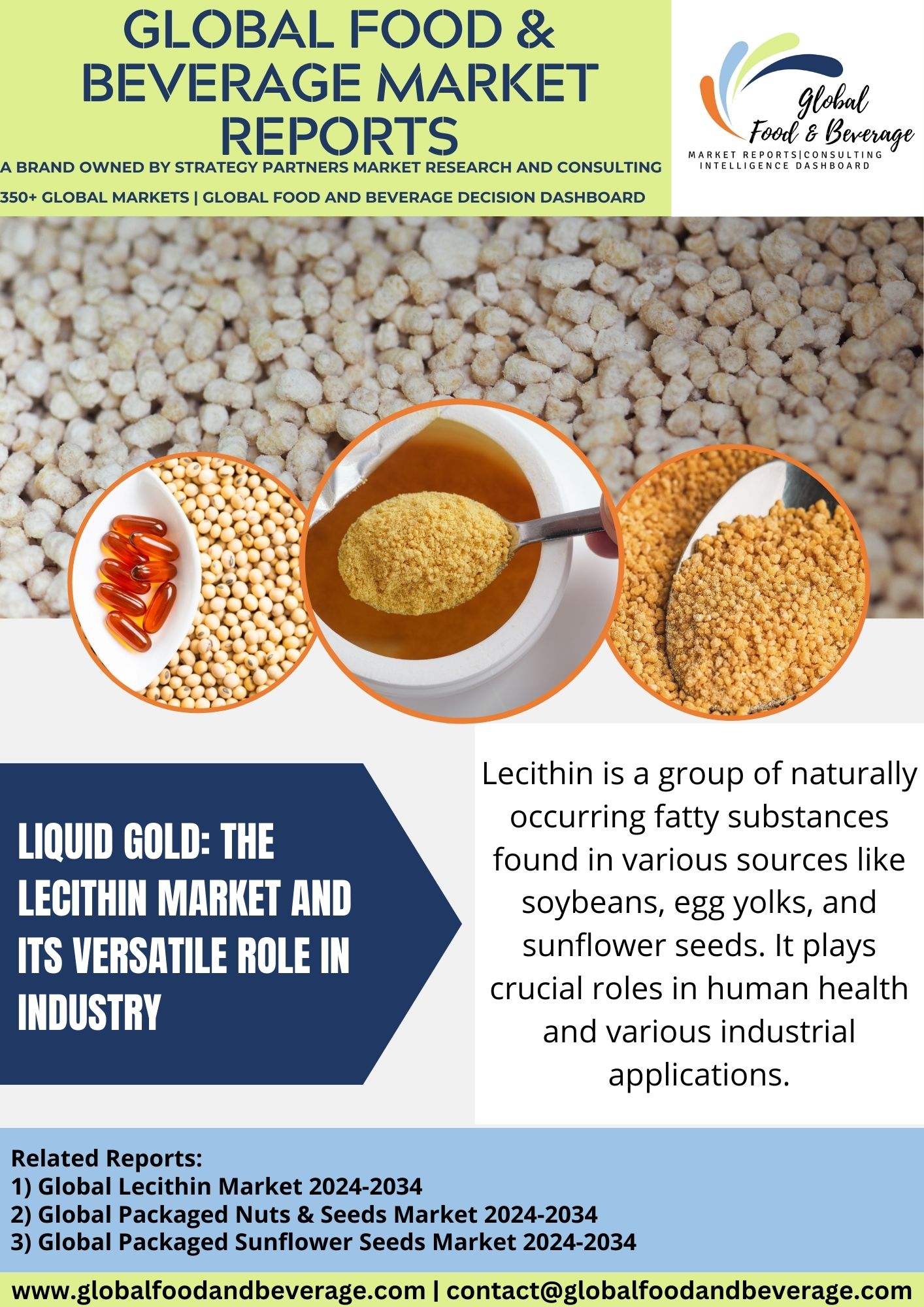
Lecithin, a phospholipid derived from sources such as soybeans, sunflower seeds, or egg yolks, holds a crucial role in various industries and biological processes. Recognized for its emulsifying properties, lecithin acts as a natural surfactant, facilitating the blending of substances that would typically repel each other, such as oil and water. This unique attribute makes lecithin a valuable ingredient in the food industry, where it is used to stabilize and improve the texture of a wide range of products.
In the realm of food, lecithin serves as a versatile and natural emulsifier in applications such as baking, confectionery, and processed foods. It prevents ingredients from separating, enhances the consistency of salad dressings, chocolate, and margarine, and contributes to the smooth texture of various spreads. Additionally, lecithin’s emulsifying properties extend to the production of baked goods, where it aids in the even distribution of fats, resulting in improved texture and shelf life.
Beyond its role in the culinary world, lecithin plays a significant role in human biology. Found abundantly in cell membranes, lecithin contributes to the structural integrity and fluidity of these membranes. It is also a precursor to acetylcholine, a neurotransmitter that plays a crucial role in various cognitive functions, including memory and muscle control. Lecithin supplements have been explored for their potential cognitive benefits, though further research is needed to establish conclusive evidence.
In the pharmaceutical and cosmetic industries, lecithin finds applications in the formulation of medications, skincare products, and cosmetics. Due to its emollient and moisturizing properties, lecithin is often included in creams, lotions, and lip balms to enhance hydration and promote skin health. Its ability to enhance the absorption of certain drugs has led to its use as an excipient in pharmaceutical formulations.
Lecithin’s emulsifying properties have positioned it as a fundamental ingredient in various sectors, from the food industry to pharmaceuticals and cosmetics. Its ability to bridge the gap between hydrophilic and hydrophobic substances makes it a versatile and indispensable component, contributing to the quality, stability, and efficacy of a wide array of products that impact our daily lives.
ADVANCEMENTS
Lecithin, a naturally occurring phospholipid derived from sources like soybeans and sunflower seeds, showcase its expanding role in various industries, including food, pharmaceuticals, and cosmetics. One significant breakthrough is the development of non-GMO (genetically modified organism) and organic lecithin. Responding to consumer preferences for natural and sustainable products, manufacturers are sourcing lecithin from non-genetically modified crops and adopting organic farming practices. This aligns with the increasing demand for clean-label ingredients in the food and health sectors.
Advancements in lecithin extraction and processing technologies contribute to the production of high-quality and versatile lecithin products. Innovative methods such as supercritical fluid extraction and enzymatic treatments allow for more efficient and environmentally friendly extraction processes, preserving the integrity of lecithin’s functional properties.
The use of lecithin in pharmaceutical formulations is expanding. Lecithin acts as an emulsifier and stabilizer in drug delivery systems, enhancing the solubility and bioavailability of poorly water-soluble drugs. This application contributes to advancements in pharmaceutical formulations, improving the efficacy and performance of various medications.
In the food industry, lecithin is increasingly used as a natural emulsifier and stabilizer. Its ability to create stable emulsions and improve texture in products like chocolate, baked goods, and margarine is well-established. Ongoing research explores additional functional properties of lecithin, such as its potential as a fat replacer and its role in reducing the sugar content of certain food products.
Advancements in lecithin’s application in cosmetics and personal care products are notable. Lecithin’s moisturizing and emollient properties make it a valuable ingredient in skincare formulations, contributing to the development of products that address hydration and skin barrier function.
CHALLENGES
Lecithin, a naturally occurring fatty substance found in various plant and animal sources, faces challenges across production, market dynamics, regulatory compliance, and sustainability. One significant challenge is the diverse sourcing of lecithin from soy, sunflower, and other oilseeds. Ensuring a stable and cost-effective supply chain while meeting quality standards poses ongoing challenges, especially considering the fluctuations in commodity prices and geopolitical factors affecting the availability of certain raw materials.
Market competition is intense, with lecithin being a key ingredient in various industries, including food, pharmaceuticals, and cosmetics. Successfully differentiating lecithin products, addressing diverse industrial needs, and staying competitive require continuous innovation in production methods, formulations, and marketing strategies.
Regulatory compliance can be complex, given the wide range of applications for lecithin. Adhering to diverse regulations across industries, regions, or countries requires continuous diligence to ensure transparency and compliance with evolving standards, especially concerning labeling and health claims.
Sustainability considerations are increasingly important in the lecithin industry. Addressing issues such as responsible sourcing, traceability, and eco-friendly processing methods is crucial for meeting consumer demands for environmentally conscious practices.
Quality control in lecithin production poses ongoing challenges. Ensuring consistent quality in terms of phospholipid content and purity demands precision in manufacturing processes. Stringent quality assurance measures are necessary to meet the diverse requirements of different industries.
CONCLUSION
Lecithin, a natural emulsifier and nutrient-rich compound, plays a pivotal role in diverse industries, from food to pharmaceuticals. Its multifaceted functions, including enhancing texture and aiding in nutrient absorption, underscore its versatility. The industry’s commitment to sustainable sourcing and innovative applications aligns with the evolving demand for cleaner labels and eco-conscious products. As research delves into its potential health benefits, lecithin continues to bridge tradition and modernity. The future promises ongoing exploration, from improved formulations to novel sources, positioning lecithin as a fundamental ingredient in a global landscape that values both functional efficacy and responsible production.
